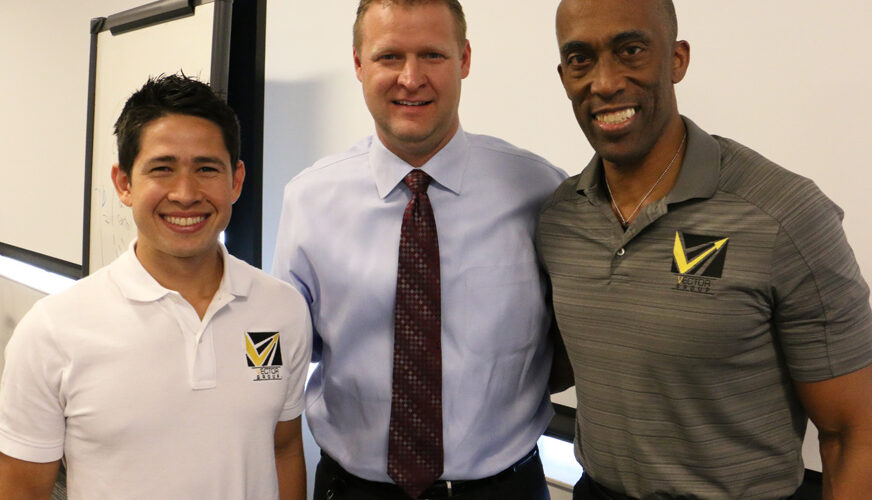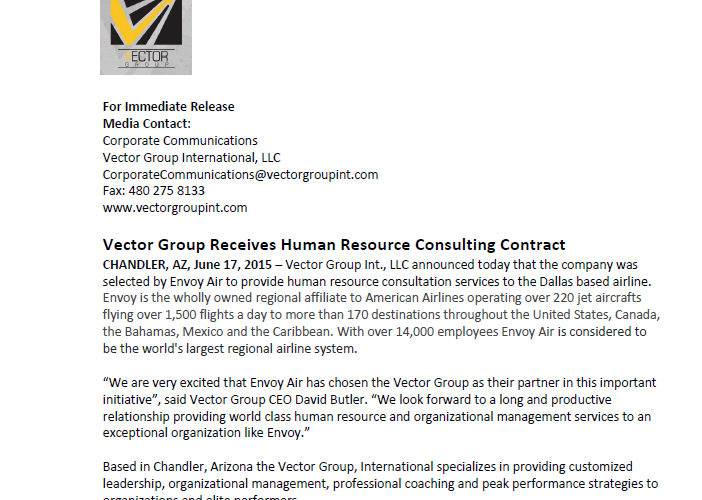Stage IV Cancer – Embracing the Suck
21
Sep 2017
Referral from Ryan Gumm, Endeavor Air
18
Jun 2015
Envoy Air Press Release
18
Jun 2015
Your Doctor Called…You Have Cancer! – Part 1
 Besides hearing bad health news about your spouse or children there is probably no worse news than “You have cancer”, followed by “You should think about getting your affairs in order.” A few months ago I received that exact phone call from my doctor.
It is one of those bizarre moments in time when you think about something happening to you that you thought would never happen to you. Your body floods with adrenaline and you have a keen awareness of everything the doctor is saying but yet not really “hearing” much of it. You feel your knee start bouncing involuntarily as you try to control an intense wave of anxiety rising inside of you like a tsunami.
Then you suddenly get a moment of brutal clarity…Your doctor just told you that YOU have cancer. Not a friend, not a relative, not a neighbor, not a church member, not an old high school buddy…YOU. You have cancer and you know that cancer cells have one sole mission - to destroy you in the most painful way possible.
As a peak performance coach I spend a great deal of my time helping others to deal with adversity, yet it can be a different perspective when the adversity is personal. But should that be the case? Are the truths of how to deal with suffering and the challenges of life situational…are they only for other people? I don’t think so.
As I was faced with the reality that I had prostate cancer I had a choice. I could ask “Why me?” But instead I thought “Why not me?” – why should I be exempt from the pain and suffering that afflicts so many people. For many years I had taught others how to face adversity with courage, resolve, and a positive spirit. Now it was my turn to reflect those skills in my life.
But how do you have a positive spirit with the specter of death hanging above you? How do you maintain the priorities of life knowing that you may not have much life left? Stay tune for Part 2 of this message to find out!
Besides hearing bad health news about your spouse or children there is probably no worse news than “You have cancer”, followed by “You should think about getting your affairs in order.” A few months ago I received that exact phone call from my doctor.
It is one of those bizarre moments in time when you think about something happening to you that you thought would never happen to you. Your body floods with adrenaline and you have a keen awareness of everything the doctor is saying but yet not really “hearing” much of it. You feel your knee start bouncing involuntarily as you try to control an intense wave of anxiety rising inside of you like a tsunami.
Then you suddenly get a moment of brutal clarity…Your doctor just told you that YOU have cancer. Not a friend, not a relative, not a neighbor, not a church member, not an old high school buddy…YOU. You have cancer and you know that cancer cells have one sole mission - to destroy you in the most painful way possible.
As a peak performance coach I spend a great deal of my time helping others to deal with adversity, yet it can be a different perspective when the adversity is personal. But should that be the case? Are the truths of how to deal with suffering and the challenges of life situational…are they only for other people? I don’t think so.
As I was faced with the reality that I had prostate cancer I had a choice. I could ask “Why me?” But instead I thought “Why not me?” – why should I be exempt from the pain and suffering that afflicts so many people. For many years I had taught others how to face adversity with courage, resolve, and a positive spirit. Now it was my turn to reflect those skills in my life.
But how do you have a positive spirit with the specter of death hanging above you? How do you maintain the priorities of life knowing that you may not have much life left? Stay tune for Part 2 of this message to find out!
13
Oct 2014
Endeavor Air Press Release
02
Oct 2014
David Butler Featured on Sac & CO
 Making a life transition, working towards a personal goal, overcoming an obstacle, there are a few things that many of us face during certain stages of life. Knowing how to work through whatever is in the way of our becoming our very best can be difficult, however having someone in your corner that can provide inspiration, support and the tools to turn dreams into reality can be the difference between success and failure.
Making a life transition, working towards a personal goal, overcoming an obstacle, there are a few things that many of us face during certain stages of life. Knowing how to work through whatever is in the way of our becoming our very best can be difficult, however having someone in your corner that can provide inspiration, support and the tools to turn dreams into reality can be the difference between success and failure.
02
Oct 2014
Are You Afraid to Jump?
 Recently I have taken up the sport of skydiving. Yes, I am jumping out of a perfectly good airplane and falling 14,000 feet at about 122 miles an hour! If you have never skydived it is an exhilarating experience and when your chute opens, it is awesome to take in the view from a mile up while floating quietly down to earth. For me, the hardest part of the sky dive is not the free fall, or opening the chute, or even the landing…it is looking out of the open door of the plane and taking the jump!
We all have experienced the fear of “jumping” in our lives. Whether it is jumping off the high dive at the swimming pool as kid, jumping into a new relationship, or jumping out of one job into another. Sometimes that fear holds us back from trying something new. Maybe it is the fear of failure, fear of rejection, the fear of the unknown or maybe it is the fear of not being in control. Like jumping out of a plane, maybe it is a fear that something will go wrong, even though we know that millions of people have done the same thing before us. Fear is about the stress of uncertainty.
The bottom line is that fear can hold us back from growing and doing the things that give life meaning. Good leaders and world class performers know that courage is not about not being afraid, but rather it is about facing our fears and conquering them.
But how do we do that; sometimes our fears can absolutely paralyze us. First we have to tell ourselves that being afraid is OK. Fear can give us clarity; it can help us to look deeply into ourselves and the situation to discover new truths. Second, we need to use positive Self-Talk to help us transform the negative messages of fear into positive messages of anticipation. Thirdly, we need to tell ourselves that not being in control is sometimes OK and often necessary in order to grow.
So when you are facing a new experience take a deep breath, let go of control, anticipate the positive, and don’t hold back. The longer you delay, the more the fear will grow. Focus on what you want to accomplish, not on what you are afraid of. And more often than not you will enjoy the experience!
So Face the Fear. Take Action. And go ahead and Jump!
Recently I have taken up the sport of skydiving. Yes, I am jumping out of a perfectly good airplane and falling 14,000 feet at about 122 miles an hour! If you have never skydived it is an exhilarating experience and when your chute opens, it is awesome to take in the view from a mile up while floating quietly down to earth. For me, the hardest part of the sky dive is not the free fall, or opening the chute, or even the landing…it is looking out of the open door of the plane and taking the jump!
We all have experienced the fear of “jumping” in our lives. Whether it is jumping off the high dive at the swimming pool as kid, jumping into a new relationship, or jumping out of one job into another. Sometimes that fear holds us back from trying something new. Maybe it is the fear of failure, fear of rejection, the fear of the unknown or maybe it is the fear of not being in control. Like jumping out of a plane, maybe it is a fear that something will go wrong, even though we know that millions of people have done the same thing before us. Fear is about the stress of uncertainty.
The bottom line is that fear can hold us back from growing and doing the things that give life meaning. Good leaders and world class performers know that courage is not about not being afraid, but rather it is about facing our fears and conquering them.
But how do we do that; sometimes our fears can absolutely paralyze us. First we have to tell ourselves that being afraid is OK. Fear can give us clarity; it can help us to look deeply into ourselves and the situation to discover new truths. Second, we need to use positive Self-Talk to help us transform the negative messages of fear into positive messages of anticipation. Thirdly, we need to tell ourselves that not being in control is sometimes OK and often necessary in order to grow.
So when you are facing a new experience take a deep breath, let go of control, anticipate the positive, and don’t hold back. The longer you delay, the more the fear will grow. Focus on what you want to accomplish, not on what you are afraid of. And more often than not you will enjoy the experience!
So Face the Fear. Take Action. And go ahead and Jump!
24
Mar 2014
The Power of Self-Talk

“Repeat anything long enough and it will start to become you” – Tom Hopkins, AuthorAll of us, at one time or another, have caught ourselves talking to our self. We feel kind of silly and may even think that something is wrong with us! But research has shown that having inner conversations can have a powerful impact on our emotional well-being and motivation. This is true whether our self-talk is positive or negative. Did you know that research has shown that 77% of the average person’s self talk is negative? Wow…77%! That is why we need to pay attention to our self-talk to make sure that our inner voice is positive. Famous sports psychologist Denis Waitley states “Relentless, repetitive self talk is what changes our self-image.” We need to keep in mind that positive self-talk is not the same as mindless positive thinking, mindless optimism or just repeating happy affirmations to ourselves. Nor is it repeating thoughts that delude reality. For example telling myself that I can become a painter like Michelangelo is flawed because I can’t even draw a stick figure! The key to positive self-talk is to recognize when our thinking is flawed and self-delusional and replace those messages with ones that are rational and appropriate. The real power of positive self-talk is how it can actually change our behavior. It is important to monitor what we say to ourselves and ask ourselves the question: “Is the way I am using my internal language programming me for success or failure?” When we do this we will not only become more aware of our own self-talk but also the self-talk of others. You will begin to see that being around other people who use positive self-talk actually has a positive impact on our motivation and our mood. Finally, after thinking correctly and positively we must follow the vector that our new, accurate, and positive inner talk points to. To align our behaviors with our new positive self-talk ask yourself these questions: What behavior has my negative self-talk caused? How has that negative self-talk hindered me from reaching my goals? What actions does my positive self-talk suggest? How will my life be better when I change? And the final key question: When and how will I start to change? World Class performers and leaders know that correct, positive self-talk is the generator that changes our behavior, fuels our motivation, and ultimately drives our performance!
14
Feb 2014
The Difference between a Leader and a Manager
03
Jan 2014
Are You a High Bar Setter?

When my daughter was in high school I was one of the coaches for her track team. My coaching area was the sprint and relay teams; however I was always intrigued but the coaching methods of the high jump and pole vaulting coach. At the beginning of each season he would ask the high jumpers and pole vaulters what they felt their height goal was for the season.“The greater danger for most of us lies not in setting our aim too high and falling short; but in setting our aim too low, and achieving our mark”.
-Michelangelo
03
Jan 2014










